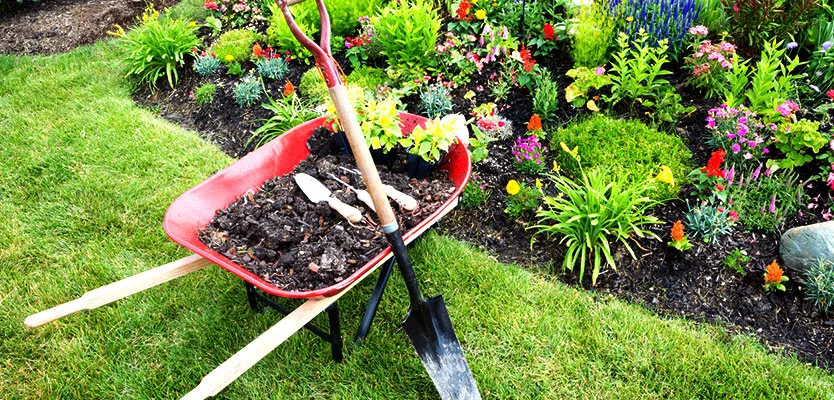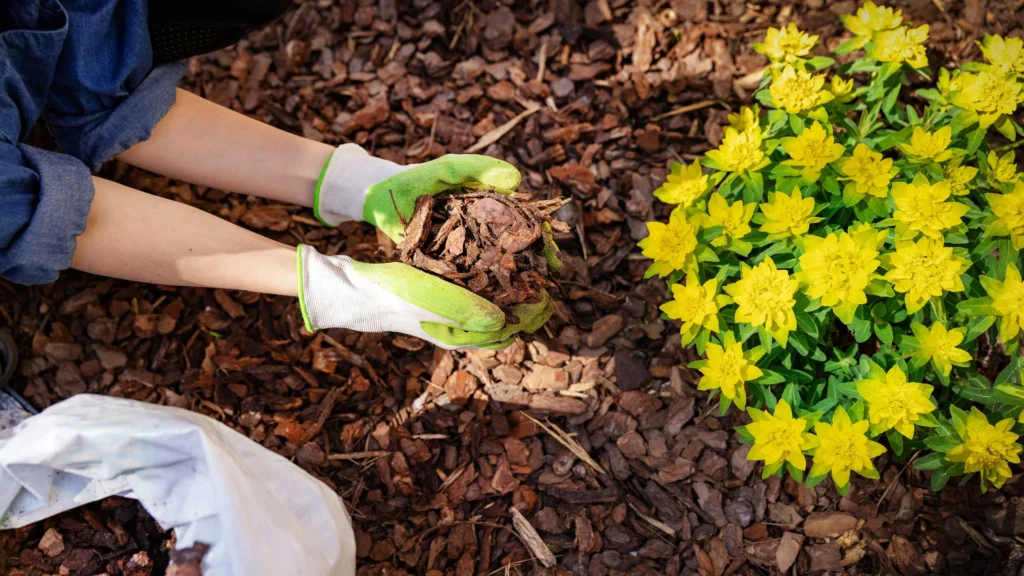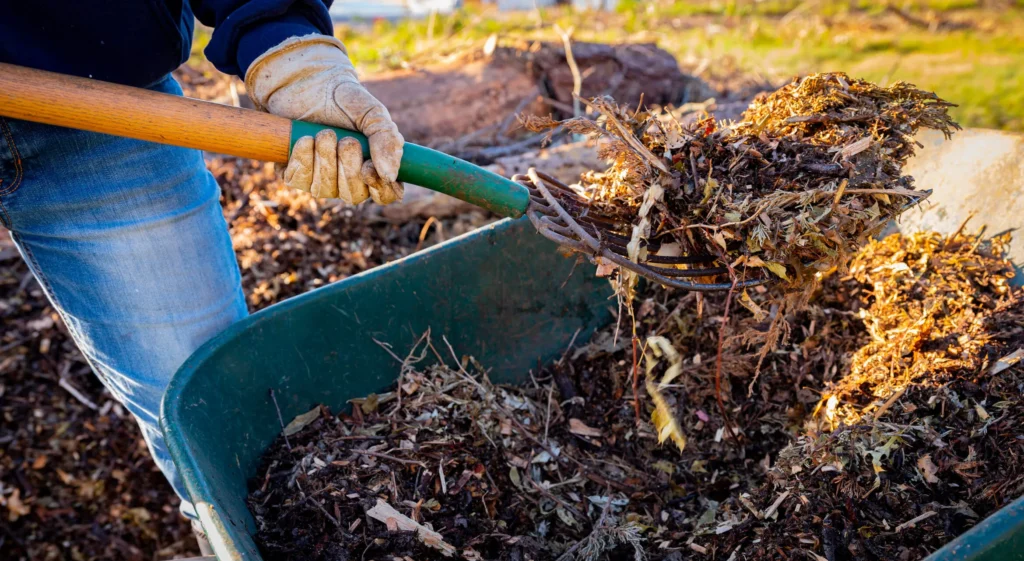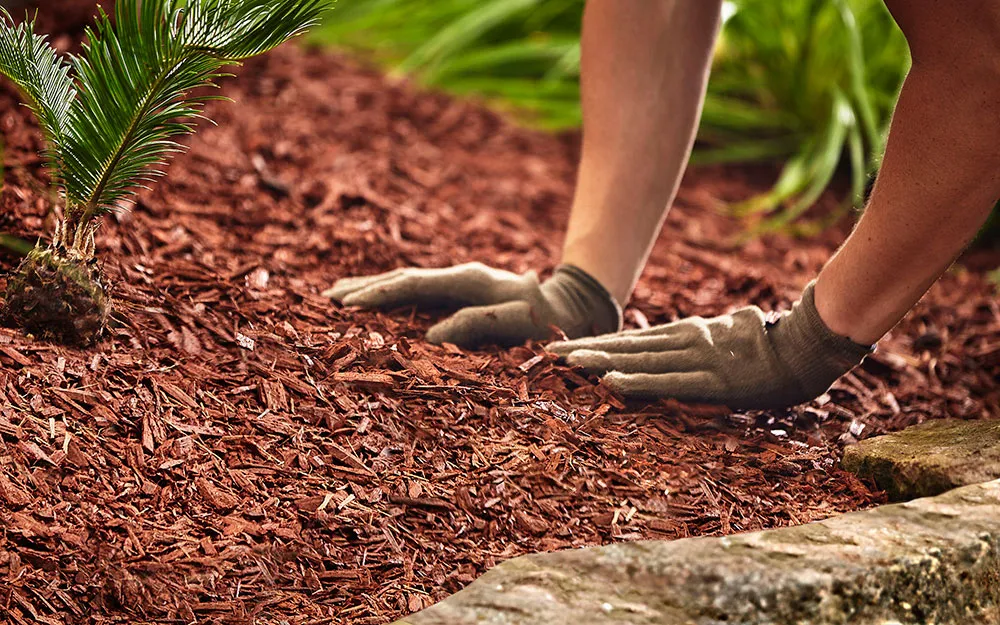Mulch is one of the most enabling implements in gardening as it improves soil quality, conserves water, and deters weed. When it comes to gardens and landscapes, the best way to go with your purchase is to get it in bulk, especially for a frequent user or gardener.

Not only is it cost-effective, but it is also consistent and environmentally advantageous. Apart from cost, mulch is one of the best practices to end weeds; hence, planting on it is always a wise decision.
What do you know about the advantages of buying bulk mulch? Does it save money and suppress weed growth? Its function in controlling weed growth and some guidelines when purchasing the appropriate mulch for your garden will be discussed.
Why Buy Mulch in Bulk?
The benefits of buying bulk mulch can save money and suppress weed growth in several ways, including:
1. Cost Savings
One of the advantages of ordering mulch in volume is that it is not wrapped or packaged like the packaged products.
When purchasing bulk mulch, the price is broken down by the cubic yard, which is cheaper per unit than buying the bags per bag. In relatively large landscaping assignments, this difference can prove to be hundreds of thousands of dollars in savings.
2. Uniform Appearance
Another advantage of using bulk mulch is that because all the mulch in bulk comes from the same supplier, the texture and color are likely to be similar to what you apply in the rest of your landscape. A is especially important for cosmetic works such as flower borders or pathways.
3. Eco-Friendly Option
Direct purchase of mulch has no packaging, which means that there is no wastage from packaging materials. Which makes it a more friendly option; it lets you reduce your impact on the environment and improve your garden.
4. Organizing Convenience for Large-scale Projects
Purchased bulk mulch can be brought to your own site, hence saving on time and energy of transporting it.
By the material that is at your disposal, you can comfortably finish giant projects without running out of the material and the annoyance of carrying the material back and forth.
Does Mulch Prevent Weed Growth?

Weed suppression is one major benefit that is achieved when mulch is applied properly. Here’s how it works:
1. Blocks Sunlight
Weeds, as any plant, need light and heat to grow, so planting them early in the day gives them the best chance to germinate and make it through until the harvest season, when the farmer is out to cut down on the weeding population in their region.
Mowing is not effective, and a 2 to 3 inch layer of mulch will act as a barrier, thus no light from the sun will reach the weed seeds on the ground. If there is no light to reach the seeds, they cannot germinate, and therefore the seeds do not grow.
2. Establishes Steady
Bearing of the soil besides, mulch operates at a moderate temperature of the ground, hence the popularizing condition that is extraneous to the emergence of weeds.
It was envisaged that cool, shaded soil would restrict the competition for access to nutrients that could result in the germination and growth of those undesirable plants that senior prisoners who are tasked with maintaining the prison gardens abhor.
3. Retains Moisture
Although it discourages the growth of weeds, mulch also assists in water conservation of the plants you want to grow. This double advantage helps your garden grow while also providing limited competition to weeds.
Indeed, for mulch to effectively suppress weeds, ensure that existing weeds are eradicated and that the mulch layer is deep enough to prevent penetration of sunlight to the weeds.
Is Mulch with Weed Control Worth It?
All mulch has at least rudimentary capabilities for weed blockade, but in the case of weed control mulch, it has been designed to optimize it.
Such products include Preen Garden Weed Preventer, which combines a pre-emergent herbicide that helps control the germination of weeds.
Weed control tips that you could use as a guide in mulching include the following:
- Prepare the Soil: Cut the short weeds that may be growing in the area of application and top the ground before adding much.
- Layer Wisely: The best way to go about it is to apply a 2 to 3-inch-thick layer of mulch on the soil.
- Apply Weed Control Products: Analyze and plant your seeds; then top the mulch layer with a weed preventer, and then you will need to water the weed preventer to engage the product.
Weed-control mulch does not completely eliminate weeds, but it greatly reduces the chances of weeds germinating in the garden.
Nevertheless, the weed seeds might germinate and grow, especially in areas that are mulched, and therefore occasional management may be required.
Which Mulch is Best for Weed Control?

Not all the mulch is so effective to control weed growth; for you to get the best result, you need to use the best bark mulches for weed control
1. Effective Weed Barrier
Bark mulch is impressively efficient in controlling weeds since it does not allow light on the seeds for germination. Organic mulch, especially the thick layer of bark, has the ability to suppress weed growth while at the same time improving the outlook of the soil.
2. Additional Benefits
Other benefits include providing a shield against extreme high temperatures and allowing the roots to get access to moisture in arid conditions owing to its reputation for moisture retention. It acts as a buffer of the soil temperature, thus preventing any plant from being exposed to very hot or cold weather.
3. Limitations of Bark Mulch
What is more, although one may choose bark mulch because it suppresses weed growth, it does not do that completely. Some weed seeds may remain alive and grow, especially if the mulch layer is too thin.
Other Mulches That Can Be Used To Manage Weed
- Rubber Mulch: Flexible and tough, rubber mulch is perfect for places where there is much traffic from children or animals.
- Straw Mulch: Very often used in vegetable gardens, straw mulch offers good coverage against weeds and also enriches the ground as it deteriorates.
- Rock Mulch: Despite the relatively poor performance of rock mulch in containing weed growth it is easy to use and has an aesthetic advantage in general landscaping.
Is Mulching Costly?
Factors Affecting Mulch Costs and the price of mulching vary depending on the type of mulch you select, the size of the project you are working on, and even if you decide to hire someone to do it for you.
1. Material Costs
The price range of the mulch is also high to low. The common mulches and composts that are derived from organic materials like bark and wood chips will be cheaper as compared to the mulch and compost that are considered specialty products, such as rubber mulch as well as dyed mulch.
2. Labor Costs
Considering hiring professionals, well, labor fees vary from $55 to $90 per hour. It is also common to find some having cubic yard rates, which, for a median of $20 and $45 per yard, only cost the labor fee.
3. Total Cost
Incoming from material as well as labor, it will cost between $50 and $155 per cubic yard for mulching. When investing in the major project, it is usually profitable to purchase the goods in large quantities.
4. Cost-Saving Tips for Mulching
- DIY Installation: Spend less on labor by distributing mulch on your own.
- Buy in Bulk: For large jobs, it is cheaper to buy mulch in bulk, as has been indicated previously in this discussion.
- Use Local Suppliers: It may be cheaper to buy mulch from local suppliers rather than buying from the large retail shops.
Conclusion
Purchasing material in large quantities is a viable and cheaper way of improving your garden or landscape, to mention but a few of the uses of mulch. It comes with numerous advantages, like uniformity, is environmentally friendly, and becomes convenient, especially for big projects.
In other words, to extend your weeding time, you need to consider using natural mulch barriers to eliminate weed problems. Huge varieties such as the bark mulch make gardening very easy because it controls the weeds as well as protects the ground.
Despite the fact that the exercise requires a person to spend a bit of cash when carrying out mulching, the benefits are numerous in the long run and stand out in terms of cost.
No matter the size of the area you need to cover—whether it is a flowerbed or a large landscape—buying mulch in volume is the best strategy for any parsimonious gardener who wants to have an even healthier and more visually appealing lawn, flowerbed, or landscape.







